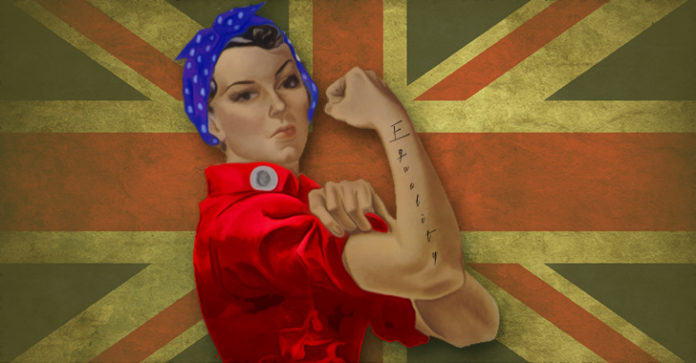
Written by Michaela Whitton at theantimedia.org
When two women put their heads together in March of this year, they could not have foreseen that their idea would snowball to such huge proportions in such a short time. The resulting U.K. Women’s Equality Party is the brainchild of author and journalist Catherine Mayer and broadcaster and author Sandi Toksvig. The party is the latest step forward in pressing for greater equality and challenging the stale world of British politics.
After the two co-founders realised they were both thinking along the same lines, a meeting in March saw the party launched in order to campaign for gender equality in Britain. What was a seed less than four months ago has rapidly sprouted into almost 50 separate branches in towns and cities throughout England, Scotland and Wales.
The party claims to be a new non-partisan force in British politics, uniting people of all ages, backgrounds, ethnicities, beliefs and experiences. Their opinion is that equality for women isn’t a just women’s issue and that when women fulfil their potential, everyone benefits. They also believe that equality for all means better politics, a more vibrant economy, and a more talented workforce. The party plans to utilise the shared determination (which can already be seen in the rapid support and growth) in order for women to enjoy the same rights and opportunities as men.
HOW?
Their mission and core aims:
- Equal representation in politics and the boardroom
- Equal pay
- Equal parenting rights
- Equality of and through education
- Equal treatment by and in the media
- An end to violence against women
Before the trolls rear their ugly heads, it is vital to note that women’s rights across the U.K. remain deeply problematic. In 2015, women continue to experience physical and psychological danger as well as abuse, rape, and violence—both in and out of their homes. In the workplace they are treated with disrespect, discriminated against, and harassed.
Women make up 51% of the population in the U.K. Despite the 1970 Equal Pay Act, they still earn less than men, with the gender pay gap being the clearest example of economic inequality for women today.
An average woman during her working lifetime will earn £361 000 less than a man.
There are currently 148 female MPs out of a total 650 members of parliament.
Despite extensive research showing that companies with women on their boards perform better, women still only make up 17% of the boards of FTSE companies.
Two women are killed every week in England and Wales by a current or former partner. Every minute, police in the U.K. receive a domestic assistance call – yet only 35% of domestic violence incidents are reported to the police.
Approximately 85,000 women are raped in England and Wales every year. Over 400,000 are sexually assaulted and 1 in 5 have experienced some form of sexual violence.
Many in the U.K. are still reeling from the results of May’s general election. In a society that pits women against each other and where politics are driven by greed and fear, women uniting and supporting each other can only push the envelope of equality and gender issues forward faster.
The Women’s Equality Party reached another milestone in momentum on Friday, July 3rd as they officially opened their doors to members. Over 1,000 people signed up in just a few hours and everyone who joins before the end of September will become a founding member.





Equality
How many men are in this equality party?